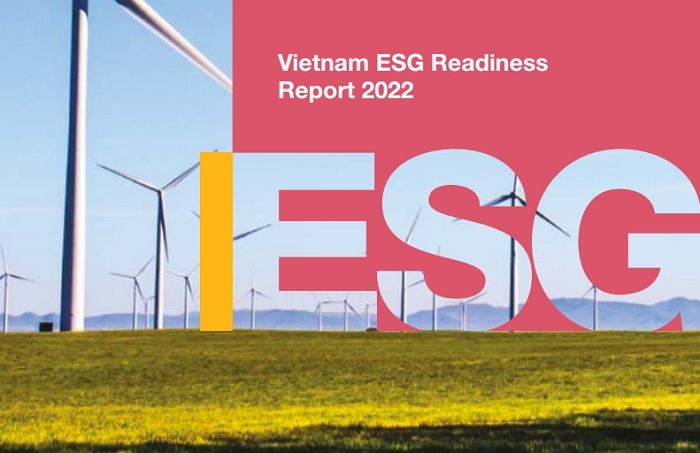On January 3, PwC Vietnam released a report on accelerating ESG adoption in Vietnam’s financial services sector, in part extracted from an earlier report compiled by PwC Vietnam and the Vietnam Institute of Directors late last year.
 |
| Report scrutinises pathway for ESG agenda in financial sector |
The financial services sub-report focuses on the ESG pathway for financial institutions. The financial services sector, as a key enabler of the economy, plays a critical role in enabling holistic efforts towards sustainability. As such, embedding ESG principles into the core strategy and operation of financial institutions will be key, the report said.
According to Dinh Thi Quynh Van, general director of PwC Vietnam, financial institutions here need to make stronger connections between purpose and profitability, and recognise the value of embedding ESG into the business strategy, which will allow them to build a stronger foundation for future sustainable and inclusive growth.
“This foundation will enable financial institutions to not just drive transformation within the sector but also help enable the adoption of ESG in other sectors through the provision of sustainable finance,” Van said.
The report reflects the highly regulated nature of the banking industry, coupled with certain challenges recently faced by the industry that were partially caused by lacking corporate governance standards.
Over two-thirds of respondents ranked governance as the top priority, followed by social aspects as a close second and environment criteria further behind on 55 per cent. The focus on governance most likely stems from companies’ belief that stronger governance will lead to better decision-making in the other two dimensions.
Besides that, 78 per cent of participants claim that they have assigned a department to operationalise ESG. Financial institutions, however, also face challenges in assessing related data and reporting externally. The report shows that fewer than one-third of respondents have a good understanding of such data for external reporting.
Findings also show that financial institutions in Vietnam are mixed on where they are in developing ESG risk metrics. Despite efforts from Vietnamese regulators in promoting new regulations in the ESG space, the top three challenges are difficulty in embedding ESG risks in the organisation’s existing risk framework (73 per cent of respondents); low quality of disclosures and counterparty awareness (61 per cent); and an absence of transparent regulations (53 per cent).
“It’s time for the Vietnam financial services sector to act and lead the country’s ESG transformation, as the government has now committed. It could start from setting up a new ESG reporting requirement, designing a top-down strategy, grasping new green financing opportunities, or building up risk management capabilities,” the report said.
Embedding ESG into the way financial services sector manages their business to generate value for its stakeholders requires thoughtful implementation of changes across its governance structure, process, data and system, and its leadership direction and capability building, according to Dinh Hong Hanh, ESG consulting lead at PwC Vietnam.
Financial institutions need to be able to develop holistic action plans that can address the various scopes required to integrate ESG understanding to perspective into all aspects of the organisation, according to Hanh.
The report explained that there are five key areas that the financial sector should consider in order to accelerate the ESG journey. Firstly, ESG should be aligned to the overall corporate strategy, with the board leading the way in shaping a strategic vision. Financial institutions can also future-proof themselves by integrating ESG risks in every stage of the risk management framework.
Thirdly, incorporating related factors into risk rating models and frameworks to make credit risk appraisal decisions will prove important. Investing in upskilling and capacity building programmes is also critical.
Finally, to facilitate robust risk monitoring and risk management, it is necessary to determine reliable internal and external data sources to accurately reflect the exposure to relevant ESG risks, the report concluded.
Vietnam is one of the countries most likely to be heavily affected by climate change, with an estimated loss of $523 billion, equivalent to 14.5 per cent of GDP, by 2050. Building green finance, therefore, plays an important role in sustainable development.
